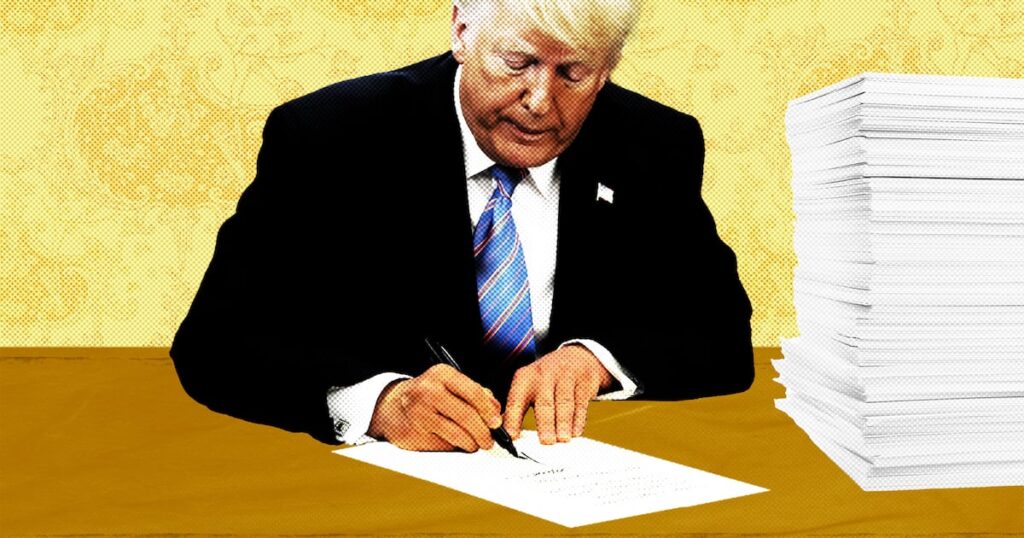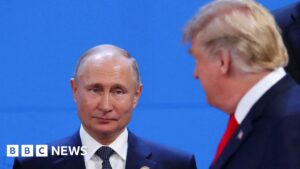
President Donald Trump has admitted that securing new trade deals before the expiration of his self-imposed 90-day pause on tariffs is proving more difficult than anticipated. This acknowledgment comes as the deadline, designed to allow negotiations to mature, is set to expire on July 8. So far, only the United Kingdom, China, and Vietnam have reached agreements with the United States.
Trump initially promised to “liberate America” with “90 deals in 90 days,” but the administration now plans to send letters to nations that have yet to agree, urging them to comply with U.S. terms. “My inclination is to send a letter out and say what tariff they’re going to be paying. It’s much easier,” Trump told reporters on Thursday, highlighting the complexity of negotiating with over 170 countries.
Challenges in Trade Negotiations
The president’s comments underscore the challenges in achieving his ambitious trade agenda. While the 90-day pause was intended to provide a window for reaching agreements, the intricate nature of international trade negotiations has slowed progress. Trump’s “take it or leave it” stance risks reigniting trade tensions, potentially impacting businesses and consumers with increased costs.
Recent tensions with Canada illustrate the delicate balance of these negotiations. Last week, Canada announced a digital service tax on American tech firms, prompting Trump to halt discussions. However, talks resumed after Canada rescinded the tax, signaling a willingness to pursue a comprehensive trade arrangement with the U.S.
Administration’s Strategy and Criticisms
The administration’s strategy of sending letters to holdout nations marks a shift from earlier indications that the deadline might be extended. “We’ll be sending some letters out, starting probably tomorrow, maybe 10 a day, to various countries saying what they’re going to pay to do business in the U.S,” Trump stated, dismissing the possibility of extending the deadline.
Critics have been quick to respond, with some mocking the “90 deals in 90 days” promise as unrealistic. The president’s approach has been dubbed “TACO” (Trump Always Chickens Out) by Wall Street, reflecting skepticism about his ability to follow through on trade threats. Despite this, Trump remains confident that his letters will prompt compliance from other nations.
Historical Context and Expert Opinions
Historically, trade negotiations have been complex and time-consuming, often requiring years to finalize. Experts note that Trump’s timeline was always ambitious. “Negotiating trade deals involves intricate details and compromises that can’t be rushed,” said Dr. Emily Carter, a trade policy analyst. “The administration’s current strategy may expedite the process, but it risks oversimplifying complex issues.”
Comparisons have been drawn to past administrations that faced similar challenges. For instance, the North American Free Trade Agreement (NAFTA) took several years to negotiate and implement. The current administration’s expedited approach contrasts sharply with such historical precedents.
Implications and Future Outlook
The outcome of these negotiations will have significant implications for the global economy. If successful, the deals could enhance U.S. economic interests and reduce trade deficits. However, failure to secure agreements could lead to renewed trade wars, affecting international relations and economic stability.
As the July 8 deadline approaches, all eyes are on the administration to see how many countries will respond to the letters and whether any new deals will be finalized. The coming days will be crucial in determining the future of U.S. trade policy and its impact on global markets.
The administration’s next steps will likely involve continued diplomatic efforts and potential adjustments to its trade strategy. Observers will be watching closely to see if Trump’s bold promises can be translated into tangible results.







